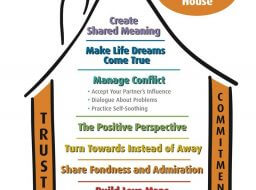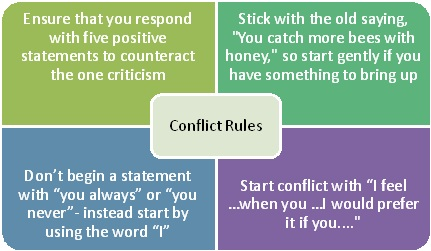- HOME
- PSYCHOLOGICAL SERVICES
- ONLINE COURSES
- Our Partnership Begins When You Purchase an Online Course
- Get to Know Dr. D’Arienzo, Relationship Expert
- Florida Premarital Preparation Online Course
- Georgia Premarital Education Online Course
- TwogetherinTexas Premarital Online Course
- Tennessee Premarital Preparation Online Course
- Minnesota Premarital Education Course Online
- Oklahoma Premarital Counseling Online Course
- South Carolina Premarital Preparation Course
- West Virginia Premarital Education Course
- Online Marriage and Relationship Tune Up Course
- Florida DCF Certified Parent Education and Family Stabilization Online Course
- Georgia Qualified Parent Education and Family Stabilization Online Course
- Texas Qualified Parent Education and Family Stabilization Online Course
- High Conflict Co-Parenting Online Certificate Course (8 Hours)
- Online Anger Management Four Hour Course (Level 1)
- Online Anger Management Eight Hour Course (Level 2)
- Sexual Harassment Online Training
- BUSINESS & PERFORMANCE PSYCHOLOGY
- CLINICAL, COUPLES, & FAMILIES
- ADHD Treatment & Evaluation Services
- Anger Management
- Anxiety Treatment & Evaluation Services
- Borderline Personality Treatment Services
- Cognitive Behavioral Therapy (CBT) Self-Help
- Couples Counseling and Marital Therapy
- Consent for Psychological Services for Minors Post-Divorce
- Depression Treatment Services
- Infidelity Recovery
- Jacksonville Counseling and Psychology
- Military Psychology & Tricare
- Narcissistic Personality Treatment Services
- Online Counseling
- Psychoeducational Testing
- Psychological Testing and Assessment
- Psychotherapy & Counseling
- FORENSIC PSYCHOLOGY & EXPERT TESTIMONY
- LIFE COACHING & EXECUTIVE COACHING
- MMPI TESTING & ASSESSMENT FOR SECURITY AND LEO
- CPI Police and Public Safety Assessment
- G License Psychological Testing
- Online Psychological Testing for Armed Security Guards and Personal Protection Officers
- MMPI Texas Level III CSO and IV PPO Psychological (ONLINE)
- Requirement for Texas Security License Applicants: MMPI Evaluation
- Level 3 Security Guard New Mexico Online MMPI Psychological Evaluation
- PSYCHOLOGICAL PUBLIC DISABILITY QUESTIONNAIRES (DBQ)
- ONLINE COURSES
- TEAM
- D’Arienzo Psychological Group Overview
- Dr. Justin D’Arienzo, Psy.D., ABPP
- Mario Decunto, LMHC
- Dr. Amy Hartley, Ph.D.
- Dr. Erica Janson, Psy.D.
- Alan Lipzin, LMHC
- Cynthia Salameh, Esquire
- Wendy Monger, Tutoring Specialist and Academic Coach
- Dr. Michael Nackashi, Psy.D., Clinical Psychologist
- Joseph Zichi, LCSW
- Mack, Roman and Roxy D’Arienzo
- MERCH & SOCIAL MEDIA
- BOOKS
- APPT REQUEST
D'Arienzo Psychology Blog
Navigating Bohannon’s Six Stages of Divorce: A Psychologist’s Guide to a Smoother Transition
Posted by: Dr. Justin D'Arienzo, Psy.D., ABPP
Divorce is more than a legal split. It’s a complex emotional, social, and psychological journey. Learn how Bohannon’s six stages of divorce affect families and discover expert-backed strategies to ease the transition with the help of D’Arienzo Psychology’s specialized divorce courses.
The Benefits of Online Academic Coaching and Online Tutoring

Posted by: Dr. Justin D'Arienzo, Psy.D., ABPP
Unlock Your Child’s Potential with Online Academic Coaching
Discover how personalized, flexible, and cost-effective online tutoring can transform your child’s education. With expert guidance from Wendy Monger at D’Arienzo Psychology, students K-12 gain tailored strategies to boost confidence, improve grades, and master life skills—all from the convenience of home. Learn how to thrive academically in today’s digital age! Read More….
Where Can I Find Divorce Parenting Classes?

Posted by: Dr. Justin D'Arienzo, Psy.D., ABPP
You Can Find Divorce Parenting Classes Right Here!!! If you are looking for a high conflict coparenting course or a parent education and family stabilization course that is online and taught by a Clinical and Forensic Psychologist who frequently provides court testimony for Family Law cases or works with parents and children experiencing a divorce, then you have landed on the right page. Our online divorce courses are accepted by family law courts and judges. If you don’t believe us, check with your attorney or Judge. Our Parent Education and Family Stabilization course is most often utilized by parents in Florida, Georgia, and Texas. If you need a certificate to list another state or provience, then let us know and we can make that happen for you. Our high conflict coparenting course can be used in all US states, the United Kingdom, and Australia.
Maintaining Friendships Amidst Divorce: A Manual for Avoiding Friend-Picking

Posted by: Dr. Justin D'Arienzo, Psy.D., ABPP
During a divorce, emotional challenges can make friends feel pressured to choose sides. However, with the right approach and empathy, this stress can be avoided. Open, honest communication is key, as is avoiding negative discussions about your ex in friends’ presence. Seeking professional counseling can be beneficial. Emphasizing empathy, urging mutual friends to continue relationships with both parties, and recognizing one’s role in the divorce can all help ensure friends stay neutral, enabling them to support both parties without feeling divided.
Charting a Course for a Cordial Divorce: A Comprehensive Manual

Posted by: Dr. Justin D'Arienzo, Psy.D., ABPP
Amid rising divorce tensions, the concept of a cordial divorce is gaining traction, emphasizing collaboration, negotiation, and mutual respect to reduce emotional and financial strains (Morrison, 2023). Effective communication, including open expression of feelings and setting conversational guidelines, is vital. Engaging a mediator or collaborative divorce advocate aids in resolving conflicts amicably. Prioritizing children by crafting a focused parenting plan ensures their well-being, while personal psychological care through therapy can enhance the entire divorce experience. Adopting a cordial approach leads to better post-divorce relationships and overall well-being.
Successful Co-Parenting Techniques When Faced with Parental Alienation

Posted by: Dr. Justin D'Arienzo, Psy.D., ABPP
The article “Successful Co-Parenting Techniques When Faced with Parental Alienation” discusses how co-parenting after separation or divorce can be further complicated by parental alienation – a scenario where one parent manipulates a child to reject the other parent without justifiable cause. The author offers several strategies for navigating this difficult dynamic including understanding parental alienation, encouraging transparent communication, ensuring parenting consistency, refraining from negative remarks about the alienating parent, seeking professional assistance, and prioritizing self care. In conclusion, the article suggests that while co-parenting with a parental alienator is challenging, patience, understanding, and the right strategies can help maintain a loving and meaningful relationship with the child.
Managing Communication with High-Conflict Parents: A Guide

Posted by: Dr. Justin D'Arienzo, Psy.D., ABPP
The article “Managing Communication with High-Conflict Parents: A Guide” offers a comprehensive strategy for communicating effectively with high-conflict parents. Key tactics include understanding, empathy, and boundary-setting. To manage one’s emotions, the article recommends mindfulness techniques and self-care practices. It emphasizes using clear language and the BIFF (Brief, Informative, Friendly, Firm) method for productive discussions. The principle of ‘active neutrality’ is endorsed to avoid escalating disagreements. It further underscores the importance of documenting all communications, especially in custody cases. Professional assistance is advised when conflicts become overwhelming. Ultimately, the welfare of the child should be the main priority in all conversations. The article concludes by offering related courses for additional guidance.
Cognitive Behavioral Therapy (CBT) Explained

Posted by: Dr. Justin D'Arienzo, Psy.D., ABPP
Cognitive behavioral therapy (CBT) is a type of psychotherapy that focuses on changing the way people think and behave. It is one of the most widely used forms of psychotherapy in the world, and it has been shown to be effective in treating a wide range of mental health conditions, including depression, anxiety, and eating disorders. What is CBT? CBT is based on the idea that our thoughts, feelings, and behaviors are all interconnected. In other words, the way we think about things can have a big impact on how we feel and how we behave. CBT helps people to identify negative or unhelpful thinking patterns, and to learn how to challenge these patterns and replace them with more helpful ones. How does CBT work? CBT is typically conducted over a series of weekly or biweekly sessions. In each session, the therapist will work with the client to identify specific problems that they are facing, and to develop a plan for addressing these problems. The plan may include a variety of techniques, such as: Cognitive restructuring: This involves identifying and challenging negative or unhelpful thoughts. Behavioral experiments: This involves testing out new behaviors in order to see if they lead to more positive outcomes. Exposure therapy: This involves gradually exposing people to situations that they find anxiety-provoking, in order to help them overcome their fear. What are the benefits of CBT?
CBT has been shown to be effective in treating a wide range of mental health conditions, including: Depression, Anxiety disorders, Eating disorders, Post-traumatic stress disorder (PTSD), Substance abuse, Chronic pain, and Insomnia
The Gottman Approach to Couples Therapy

Posted by: Dr. Justin D'Arienzo, Psy.D., ABPP
The Gottman Approach is a research-based approach to couples therapy that has been shown to be effective in helping couples improve their communication, resolve conflict, and strengthen their relationships. What is the Gottman Approach? The Gottman Approach is based on the idea that all relationships go through ups and downs, and that it is possible to learn how to weather the storms and come out stronger on the other side. The approach focuses on helping couples to: Understand their own and their partner’s emotional needs. Communicate effectively with each other. Resolve conflict in a healthy way. Build trust and intimacy. Maintain a positive outlook on their relationship.
How does the Gottman Approach work? The Gottman Approach is typically conducted over a series of weekly or biweekly sessions. In each session, the therapist or psychologist will work with the couple to: Identify their strengths and weaknesses as a couple. Learn how to communicate effectively with each other. Resolve conflict in a healthy way. Build trust and intimacy. Maintain a positive outlook on their relationship.
Effective Methods of Communication for Couples

Posted by: Dr. Justin D'Arienzo, Psy.D., ABPP
Effective Methods of Communication for Couples Updated 2023–Effective Methods of Communication for Couples was written by future Industrial Organizational Psychologist, Brandon Araujo, for the D’Arienzo Psychology in September 2014. D’Arienzo Psychological Group is a Jacksonville, Florida based Clinical, Forensic, and Industrial Psychology Practice. One of our specialties is couples counseling and marital therapy, and we […]




